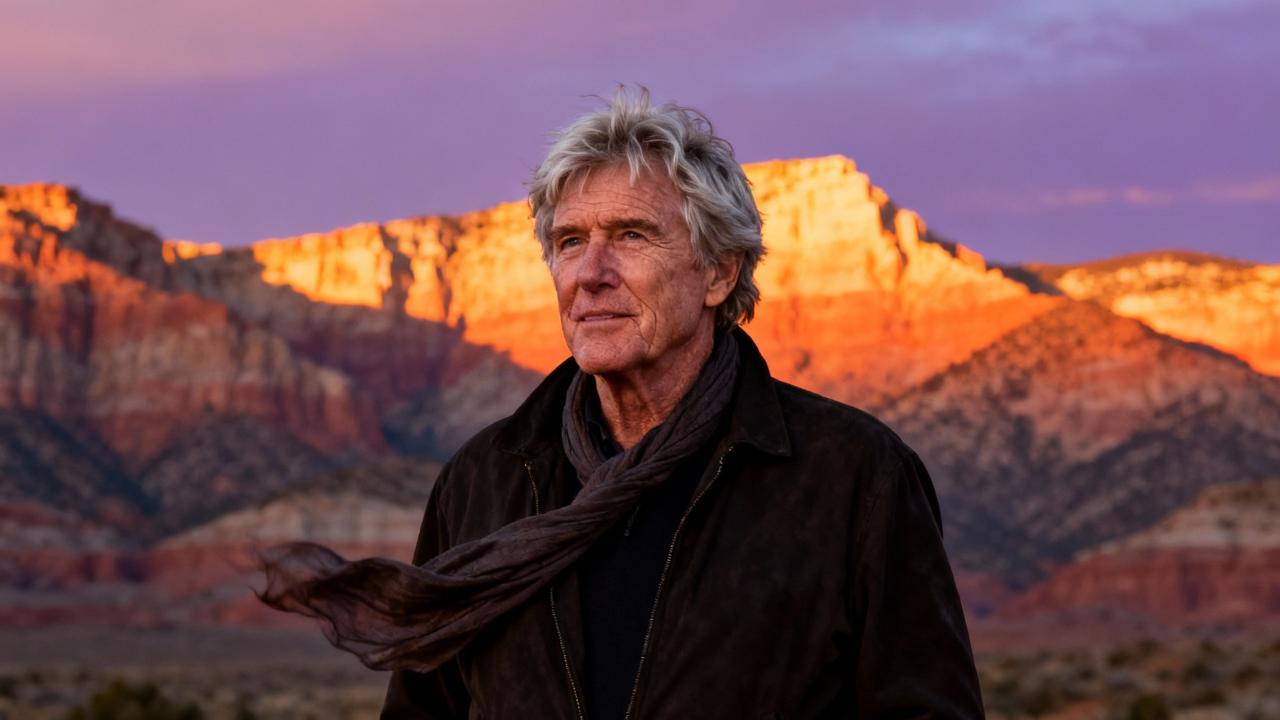
Robert Redford, the actor who embodied rugged charm in Butch Cassidy and the Sundance Kid and All the President’s Men, the filmmaker who directed the quietly devastating Ordinary People, and the visionary who built the Sundance Film Festival into the beating heart of independent cinema, has died at 89.
He passed away September 16, 2025, at his home in Sundance, Utah, surrounded by family according to his longtime publicist.
A Career That Reshaped Hollywood
Redford’s career spanned six decades, balancing box office stardom with iconoclastic choices. He never fully embraced the “leading man” label, though his tousled blond hair, easy charisma, and piercing restraint on screen made him one of the most recognizable stars of the 1970s. Films like The Sting (1973) and All the President’s Men (1976) cemented his place as a cultural touchstone.
But Redford was never content to be a poster on a dorm room wall. His directing debut, the intimate family drama Ordinary People (1980), shocked Hollywood by beating Martin Scorsese’s Raging Bull at the Oscars, earning him Best Director. His later films—A River Runs Through It (1992), Quiz Show (1994), The Horse Whisperer (1998)—revealed his interest in morality, family, and the quiet struggles beneath the American dream.
Sundance and the American Indie Revolution
If Redford had stopped with acting and directing, his legacy would still tower. But he didn’t. In 1981, he founded the Sundance Institute, and with it, the Sundance Film Festival, the single most important incubator for American independent filmmakers. Quentin Tarantino, Steven Soderbergh, Ava DuVernay, and countless others found their first audiences in Park City, Utah.
Redford once joked that Sundance was supposed to be “weird and hard to get to,” but in making it a magnet for daring voices, he helped redefine the business of film. Sundance is where Clerks, Reservoir Dogs, Get Out, Manchester by the Sea, and CODA (which won the Academy Award for Best Picture in 2022) first grabbed attention. In that sense, Redford didn’t just change what movies looked like—he changed who got to make them.
The Personal Costs Behind the Public Persona
Behind the golden aura was a man deeply shaped by loss. Born Charles Robert Redford Jr. in 1936 in Santa Monica, California, he lost his mother when he was barely out of boyhood. His first child, Scott, died of sudden infant death syndrome in 1959. In 2020, his son James (David) Redford, a filmmaker and activist, died of cancer at just 58. These tragedies weren’t often public, but they informed the quiet grief that flickered beneath the surface of his work—noticeable in the silences of All Is Lost (2013) or the fatherly ache of A River Runs Through It.
An Activist Before It Was Marketable
Redford was one of the earliest in Hollywood to use his platform for political and environmental causes. Long before climate change became a partisan flashpoint, he was calling attention to the fragility of Western landscapes. He fought power plant developments in Utah, supported conservation efforts, and pushed for Indigenous rights. Being handsome made him a star; being stubborn made him an activist.
Tributes From Across Generations
Tributes poured in across social and political circles. Jane Fonda, who starred alongside him in multiple films including Barefoot in the Park (1967), described him as “a beautiful person in every way.” Meryl Streep, his co-star in Out of Africa, called him “a lion.” Former President Barack Obama, who awarded Redford the Presidential Medal of Freedom in 2016, praised him as someone Americans admired not just for acting, “but for having figured out what to do next” NBC News.
A Life Both Golden and Restless
Redford lived with one foot in Hollywood and one far from it. He built his Sundance home in the Utah mountains in the 1960s because, he once said, he wanted to be “where nature was extreme.” Even as he appeared in Marvel blockbusters late in life (Captain America: The Winter Soldier, Avengers: Endgame), he remained, improbably, an outsider.
He leaves behind his wife, the artist Sibylle Szaggars Redford, two surviving daughters, Shauna and Amy, and a generation of filmmakers whom he elevated.
Redford once resisted the word “retirement,” saying in 2018: “To me, retirement means stopping something. Why stop? There’s this life to lead—why not live it as much as you can as long as you can?”.
Now that life has closed its curtain, the legacy of Robert Redford isn’t just in the films he made, but in the laughter of film crews at Sundance screenings, in the grain of American independent cinema, and in the wild silence of the Utah mountains that he called home.
